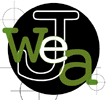First comes this story from the Chicago Tribune, exploring the possibility that censorship is on the rise in the wake of the firing of a respected adviser in Naperville, Ill. Quoted in the story are former SPLC director Mark Goodman and current SPLC director Frank LoMonte.
"Experts are adamant that losses like (adviser Linda Kane's) reverberate and are much more foreboding. The disagreement that led to Kane's dismissal stemmed from some controversial articles on drug use among students, and experts say her firing is part of a growing trend toward censorship in high schools, a trend that erodes citizenship, even chips away at democracy in important — if almost imperceptible — ways."
That last statement rings especially true for those of who believe student journalism is at the cornerstone of teaching democracy to future citizens — both those who work on publications and those who read them — and is supported by this recent article from the First Amendment Center.
"After 12 years of censorship and regimentation, many high school students will graduate this spring with little or no idea about what it means to be a free, active and engaged citizen in a democracy.
"When they march across the stage to get their diploma, let’s hope someone slips them a copy of the First Amendment — with instructions on how to use it.
"Far too many public school officials are afraid of freedom and avoid anything that looks like democracy. Under the heading of “safety and discipline,” administrators censor student religious and political speech, shut down student newspapers and limit student government to discussions about decorations at the prom.
"Fortunately, a growing number of brave students defy the odds and take seriously what they hear about free speech in civics class."
It reiterates a lot of points many of us have made many times over the years, but it never gets old — especially since this particular piece also ran in the Spokesman-Review. (It's the top link on the Google search — that's the only way to get to an S-R article without a subscription.)
If you're hungry for more information on the Naperville issue, I suggest starting here, then going here and here.

